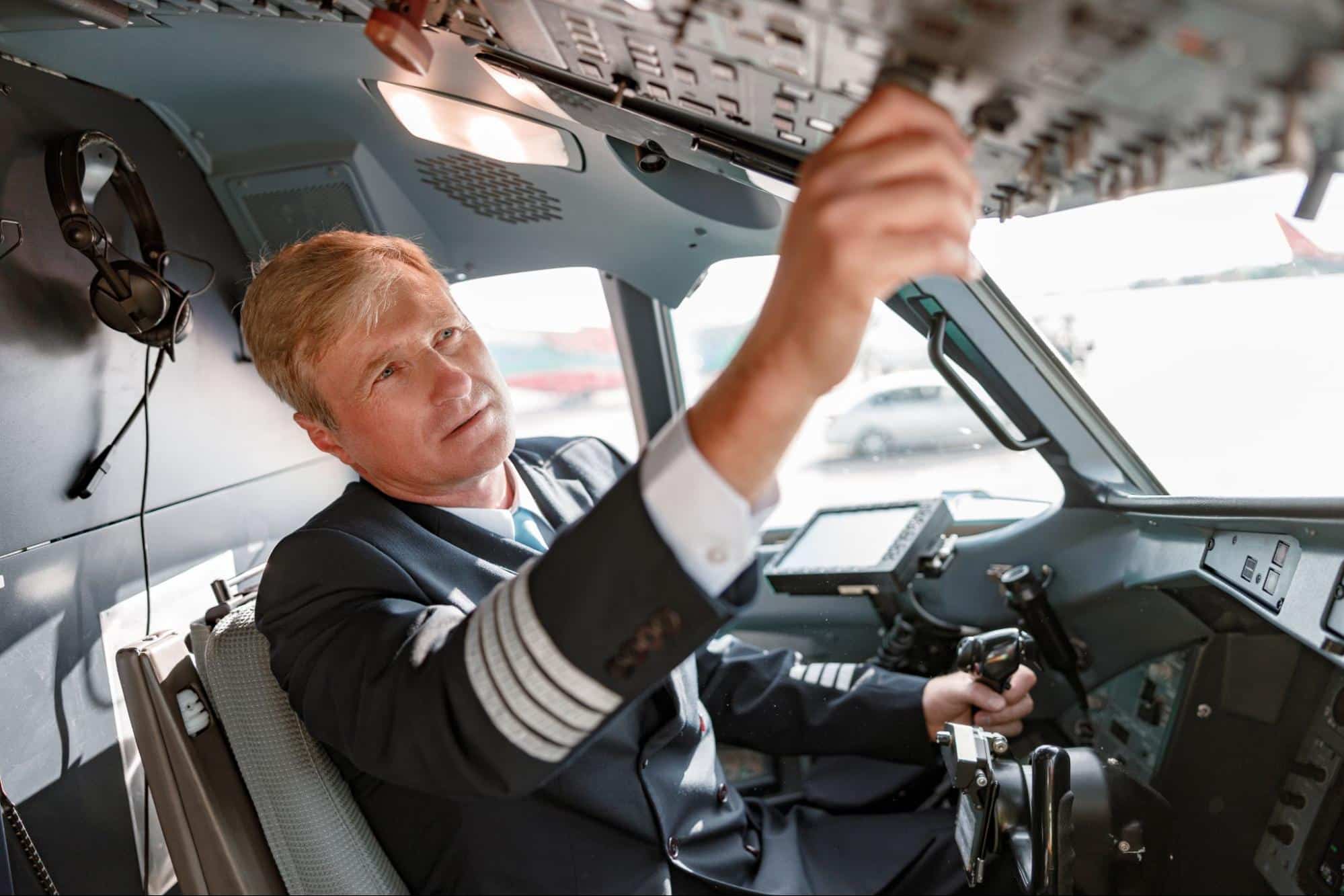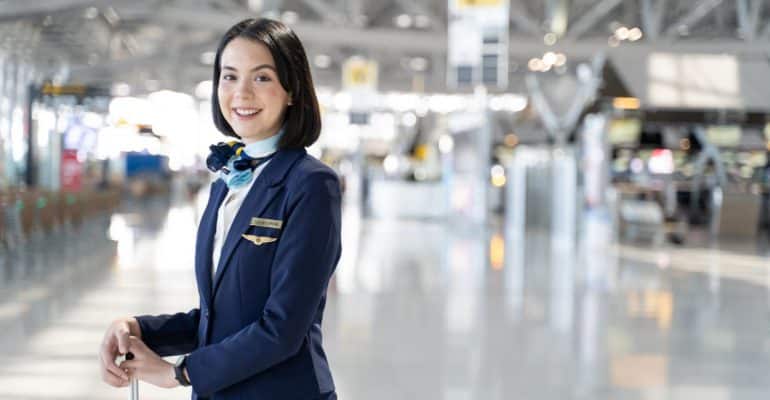The United States of America’s aviation industry is a thriving ecosystem that demands a diverse range of professionals to ensure the safe and efficient operation of flights. The significance of skilled individuals occupying various Flight Operations careers within this intricate framework cannot be understated. These roles not only underscore the nation’s commitment to aviation excellence but also present unparalleled prospects for those seeking to excel in the dynamic realm of flight operations.
With the soaring demand for air travel and the constant evolution of aviation technology, Flight Operations careers have emerged as pivotal pillars in the aviation field. These roles go beyond the cockpit, encompassing a spectrum of responsibilities requiring technical expertise, impeccable communication skills, and an unwavering dedication to the highest safety and efficiency standards.
This article delves into the multifaceted aspects of employment in Flight Operations careers in the United States. From the critical role of air traffic controllers in orchestrating the intricate dance of daily flights to the vital contributions of aviation meteorologists in safeguarding flights against the vagaries of weather, we explore the diverse tapestry that makes up the modern aviation industry. Moreover, we illuminate the invaluable responsibilities shoulder by flight training instructors who impart their expertise to aspiring pilots, forging the next generation of skilled aviators.
As the United States continues to experience an upsurge in air travel, the demand for adept professionals in the realm of Flight Operations careers escalates correspondingly. This article aims to provide insights into the dynamic opportunities the aviation industry presents, emphasizing the critical roles that contribute to its seamless functioning. By acknowledging the intricacies of these roles, we celebrate the dedication of those individuals who, behind the scenes, play an indispensable part in ensuring that the skies above remain a symbol of safety, progress, and boundless horizons.
Airline Pilots
Airline pilots shoulder the responsibility of operating aircraft and ensuring the safety of passengers and crew. Their role encompasses adhering to flight plans, skillfully managing aircraft systems, and maintaining constant communication with air traffic control. In the dynamic landscape of aviation, pilots are entrusted with making critical decisions that impact flight trajectory and safety. The pilot cadre comprises Captains (Commanders) and First Officers (Co-Pilots), each assuming distinct levels of experience and accountability. The synergy between these professionals is paramount for seamless flights, as Captains provide leadership and extensive expertise, while First Officers contribute their skills to assist in navigation and operational tasks. In sum, the role of an airline pilot epitomizes both skill and responsibility, encapsulating the essence of safe and efficient air travel.

Flight Dispatchers
Flight dispatchers play a pivotal role in aviation by collaborating with pilots and air traffic control to meticulously strategize and harmonize flight routes. By meticulously scrutinizing meteorological conditions, aircraft performance metrics, and other pertinent variables, they meticulously fashion flight plans that prioritize both safety and efficiency. Additionally, these adept professionals provide vital real-time assistance to pilots, enabling them to navigate through challenging conditions and execute well-informed decisions. Their expertise ensures that flights circumvent adverse weather or airspace issues, guaranteeing a secure and seamless journey for passengers and crew. In essence, flight dispatchers serve as a linchpin in the aviation operation, orchestrating the synchronization of diverse elements to ensure the success of each flight.
Aircraft Load Planners
Aircraft load planners are essential in aviation operations, meticulously strategizing the distribution of cargo, baggage, and passengers within an aircraft. Their primary objective is upholding optimal balance and weight distribution, safeguarding the aircraft’s stability and safety. These professionals meticulously calculate the aircraft’s center of gravity and adhere to strict weight limitations, thereby ensuring the aircraft operates within secure parameters. By skillfully coordinating the placement of loads and passengers, load planners effectively mitigate the risk of imbalanced weight, which could compromise flight stability. The precision and expertise of aircraft load planners contribute significantly to the seamless and secure execution of flights, underscoring their indispensable role in maintaining the highest standards of safety within the aviation industry.
Flight Operations Managers
Flight operations managers play a pivotal role in the aviation industry by assuming the responsibility of supervising the daily operations within an airline’s flight department. Their comprehensive oversight encompasses tasks such as pilot schedule management, meticulous regulation adherence, collaboration with diverse departments (including maintenance and ground operations), and timely resolution of operational challenges. By orchestrating these multifaceted responsibilities, flight operations managers ensure flight activities’ seamless coordination and efficiency. They are critical players in upholding the highest safety standards, optimizing resource utilization, and guaranteeing a superior travel experience for passengers. In the dynamic realm of aviation, the expertise of flight operations managers contributes significantly to maintaining the smooth functioning of an airline’s operations, ultimately affirming their essential role in the modern aviation landscape.
Flight Safety Officers
Flight safety officers are critical in aviation as safety guardians within an airline’s operations. These professionals are dedicated to identifying and proactively addressing potential safety hazards. Their responsibilities include conducting rigorous safety audits, meticulously investigating incidents and accidents, analyzing data to discern emerging trends, and offering actionable recommendations for enhancing overall safety. The expertise of flight safety officers serves as a bulwark against risks, ensuring that the aviation industry consistently upholds the most stringent safety standards. Their unwavering commitment to preempting potential threats and enhancing safety measures is indispensable in safeguarding the well-being of passengers, crew, and all those who rely on air travel. In a field where safety is paramount, flight safety officers are sentinels of aviation’s unyielding dedication to the highest security and operational excellence standards.
Aviation Meteorologists
Aviation meteorologists are essential figures in the aviation industry, with distinctive expertise in furnishing weather forecasts and intelligence uniquely suited to aviation requirements. By meticulously scrutinizing weather patterns, atmospheric dynamics, and meteorological data, they craft precise predictions tailored to airports and flight routes. These forecasts hold paramount importance as they enable pilots and airline operations teams to make judicious decisions in flight planning. From selecting optimal routes to considering diversion possibilities and implementing safety measures during challenging weather scenarios, aviation meteorologists empower aviation professionals to navigate effectively and responsibly. Their role is instrumental in enhancing both flight safety and efficiency by ensuring that pilots are equipped with real-time, accurate weather insights. The diligent work of aviation meteorologists elevates the industry’s capacity to maneuver through varying weather conditions, ultimately contributing to the integrity of flight planning and operations.
Air Traffic Controllers
Air traffic controllers (ATCs) are crucial in the aviation ecosystem, orchestrating aircraft’s secure and systematic navigation within controlled airspace and on airport grounds. By interfacing directly with pilots, they issue precise instructions for takeoffs, landings, and in-flight trajectories, meticulously maintaining safe separations between aircraft. ATCs leverage sophisticated radar systems, communication tools, and their extensive proficiency to harmonize flight paths, oversee meteorological conditions, and adeptly address unforeseen contingencies. Their pivotal function lies in averting collisions, optimizing the flow of air traffic, and guaranteeing the seamless and punctual execution of flights. ATCs stand as sentinels of safety and operational continuity in the dynamic realm of aviation, exemplifying their crucial contribution to the well-being of passengers, crew, and the entire aviation industry.

Aircraft Maintenance Technicians
Aircraft maintenance technicians are instrumental to the well-being and performance of aviation. They are responsible for inspecting, servicing, repairing, and maintaining the aircrafts’ vital components. From electrical systems to engines and airframes, they possess an in-depth understanding of these intricate systems and their operation to ensure that any problem is identified and addressed.
To ensure the safety of all passengers and crew on board, these technicians conduct exhaustive pre-flight inspections to guarantee that the aircraft meets its standard requirements. During their work, they diagnose any issues and make repairs or replacements on various parts as needed. Aircraft maintenance technicians are critical to the airline industry as they ensure that aircrafts are maintained properly for safe operation.
Flight Dispatchers
Flight dispatchers are the unsung heroes of the flight crew, responsible for the safe and efficient operation of flights. Flight dispatchers collaborate with pilots and air traffic controllers to ensure that flights stay on track, and closely monitor weather conditions to assess potential risks and devise tailored solutions. By continuously monitoring aircrafts’ flight plans, these professionals are well-versed in airspace regulations and act as the brains behind flight operations. Their meticulous work involves factoring in many variables such as aircraft performance, en route weather, and passenger safety levels to ensure that flights adhere to regulations and are operated beneficially. Flight dispatchers are an integral part of aviation safety, with their exhaustive planning ensuring the optimum performance of flights while reducing delays and cancellations.

Begin The Path Toward Your Flight Operations Job at Everglades University
The intricate tapestry of Flight Operations careers within the United States aviation industry is a testament to this ever-evolving field’s dynamic and multifaceted nature. As we have explored the pivotal roles played by airline pilots, flight dispatchers, aircraft load planners, flight operations managers, flight safety officers, aviation meteorologists, air traffic controllers, and aircraft maintenance technicians, we are reminded of the collective effort required to ensure the safety, efficiency, and success of every flight.
With its exponential growth and continuous innovation, the aviation industry presents unparalleled opportunities for those aspiring to become an integral part of this vibrant sector. Whether you are captivated by the idea of guiding aircraft through the skies as a skilled pilot, orchestrating flight paths as an air traffic controller, or contributing to the science of aviation meteorology, the pathway to a fulfilling and impactful career in Flight Operations begins with the right education.
At Everglades University, we understand the profound significance of cultivating the next generation of aviation professionals. Our Aviation & Aerospace degree program equips students with the knowledge, skills, and hands-on experience necessary to thrive in a range of Flight Operations careers. With a curriculum designed to meet the exacting standards of the aviation industry, our program offers a comprehensive foundation that paves the way for a successful career journey.
Embark on your journey towards excellence in the aviation industry by enrolling in Everglades University’s Aviation & Aerospace degree program today. As you delve into the complexities of flight operations, you’ll gain the expertise and confidence needed to soar to new heights in this captivating field. Join us in shaping the future of aviation and contributing to the safe, efficient, and awe-inspiring world of flight operations. Your dreams of making a difference in the skies await – start your journey with Everglades University now.













